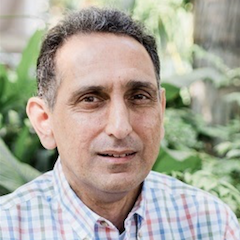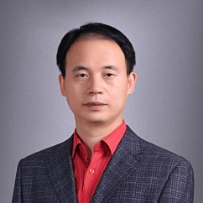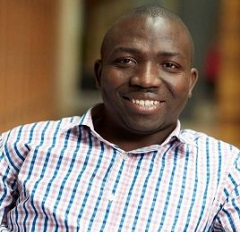Human Genomic Epidemiology - Asia (Virtual)
13–17 June 2022
Virtual course
Learn how to apply statistical and computational approaches for candidate-gene and genome-wide association studies in populations
Summary
In collaboration with the University of Hong Kong and Monash University Malaysia, we are pleased to announce the Human Genomic Epidemiology in Asian Populations course.
Advances in genomics have led to exciting new insights on the causes and mechanisms of common human diseases and traits, paving the way for the development of precision medicine. Most large-scale human genomic studies have been conducted on populations of predominantly European origin, and there is an urgent need for more research in populations with non-European ancestry, so that everyone can reap the potential benefits of genomic medicine. However, there are significant ethical and technical challenges for human genomic research in Asia, such as the large number of diverse populations with varying levels of literacy, high level of population genetic diversity, admixture and consanguinity in many countries, and small sample sizes. Meeting these challenges will require the capability to use sophisticated methods for analysing and interpreting genomic data, which creates an urgent need for training and continuous updating of skills. Despite these challenges there have been some notable successes addressing genomics of complex diseases and traits in some Asian countries, like China, Japan and Singapore.Providing genomic researchers on the Asian continent with resources and tools to expand capacity for analysing big genome and phenotype data will bridge the skills gap and enable locally tailored opportunities for genomics in health research.
This virtual course will provide participants with ‘hands-on’ practical exercises on the design, data processing, analysis and interpretation of results aimed at understanding the genetic architecture of complex human traits and diseases. Using Asian datasets, participants will learn how to apply statistical and computational approaches for candidate gene and genome-wide association studies and their meta-analyses. Ethical and legal implications in human genomics data collection and sharing will also be discussed. Participants will have an opportunity to establish links and networks and develop future collaborative projects.
Target audience
The course is aimed at scientists based in Asia including postgraduates, PhD students, research assistants, postdoctoral scientists and researchers from biological, clinical, bioinformatics, statistics, mathematics and computer science backgrounds engaged in, or planning to conduct, genetic and genome-wide association studies.
Programme
The course will be conducted virtually, but will provide ahands-on training to equip participants with skills to analyse and interpret genome-wide association study (GWAS) data with an emphasis on Asian population studies. The course will
- Provide training on theoretical and practical aspects of genomic epidemiology, GWAS and their meta-analyses.
- Demonstrate how basic and advanced statistical and computational approaches are applied for analysis of human genotype data in relation to their effects on human traits and diseases.
- Emphasise the genetics of complex traits, based on Asian datasets (using case studies).
- Provide ‘hands-on’ practical exercises on the design, data processing, analysis and interpretation of results aimed at understanding the genetic architecture of complex human traits or diseases
- Discuss, and bring awareness to ethical and legal implications and issues concerning informed consent and data sharing in human genomics and research or health applications.
Learning Outcomes
The course will cover the analysis of genomic datasets in relation to human traits and disease phenotypes. At the end of the course, participants will be able to:
- Describe the general principles, assumptions, ethical considerations and basic techniques used in genetic epidemiology studies.
- Outline the different study designs and appropriate computational approaches.
- Perform the essential steps in the analysis of GWAS data, such as quality control, assessment of population structure and relatedness, genetic association testing using standard approaches and software tools.
- Evaluate and interpret the results of association analysis and visualise them.
- Perform imputation of variants that have not been directly genotyped.
- Perform post-association GWAS analyses including fine-mapping of implicated loci to point to likely causal variants, genes and pathways.
- Conduct meta-analysis of genome-wide association studies.
- Critically evaluate research articles that present results from candidate-gene and genome-wide association studies.
- Appreciate the different ELSI considerations and approaches used to engage under-represented South East Asian communities in genomics projects.
Case studies
Schizophrenia.
COVID-19 Host Genetics Initiative.
Seminar topics
- Achievements, opportunities and challenges in Asian GWAS.
- Practical aspects in sample and data collection, tracking storage and QC.
- Epigenomic marks and and eQTLs.
- Translational approaches to GWAS.
Please note: Applicants will require a working knowledge of the UNIX/Linux operating system. This can be obtained by various methods and is essential to fully benefit from the course. There are numerous online introductory tutorials to the UNIX/Linux operating system and command line, including:
http://www.ee.surrey.ac.uk/Teaching/Unix
http://swcarpentry.github.io/shell-novice/
Instructors and speakers
Organisers

Pak Sham
University of Hong Kong

Clara Tang
University of Hong Kong

Qasim Ayub
Monash University Malaysia
Instructors and Assistants

Hon-Cheong So
University of Hong Kong

Miaoxin Li
University of Hong Kong

Konstantinos Hatzikotoulas
Helmholtz Zentrum München

Maude E. Phipps
Monash University Malaysia

Wee Wei Yee
Monash University Malaysia

Eva Maria Cutiongco-De La Paz
Philippines Genome Centre

Ananyo Choudhury
Sydney Brenner Institute for Molecular Bioscience, University of the Witwatersrand

Dhriti Sengupta
Sydney Brenner Institute for Molecular Bioscience, University of the Witwatersrand

Tinashe Chikoware
Sydney Brenner Institute for Molecular Bioscience, University of the Witwatersrand

Segun Fatumo
London School of Hygiene and Tropical Medicine
Seminar speakers

Eleftheria Zeggini
Institute of Translational Genomics, Helmholtz Zentrum München

Sathiya Maran
Monash University Malaysia
How to apply
Prerequisites
Target audience
The course is aimed at postgraduate (PhD) students, research assistants, postdocs and researchers from biological, clinical, bioinformatics, statistics, mathematics and computer science backgrounds engaged in, or planning to conduct, genetic and genome-wide association studies, based in Asia only.
Applicants will require a working knowledge of the UNIX/Linux operating system. This can be obtained by various methods and is essential to fully benefit from the course. There are numerous online introductory tutorials to the UNIX/Linux operating system and command line, including:
http://www.ee.surrey.ac.uk/Teaching/Unix
http://swcarpentry.github.io/shell-novice/
Participants should have
- Some background in human genetics and genomics
- Computer competency including basic command line skills
- Demonstrated involvement in human genetic/genomic studies – or plan to do so in the near future (for students, supervisor support will be required)
The course will be taught in English.
How to Apply
Please click the Apply button above to begin the online application process. Places are limited and will be awarded on merit. If you have any problems with the online application process, please contact us.
Please note: Applications must be supported by a recommendation from a scientific or clinical sponsor (e.g. supervisor, line manager or head of department). A request for a supporting statement will be sent to your nominated sponsor automatically during the application process. Applicants must ensure that their sponsor provides this supporting statement by the application deadline. Applications without a supporting statement cannot be considered.
Cost
Cost
The course is subsidised by Wellcome Connecting Science Courses and Scientific Conferences and is free to attend for non-commercial applicants. Please contact us for the commercial fee.
Accommodation services phishing scam – please be vigilant. More information.

